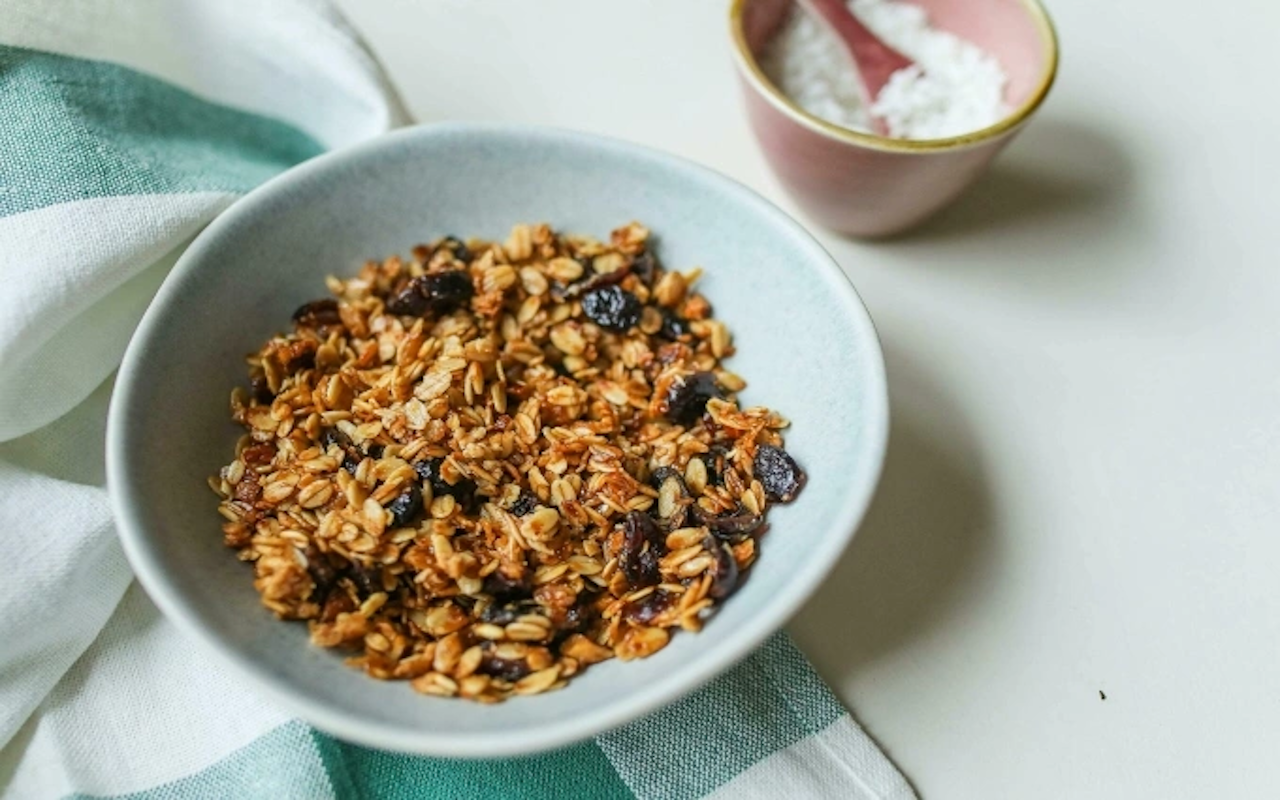In our increasingly fast-paced lives, convenience often dictates our food choices, especially when it comes to the first meal of the day. Breakfast, touted as the most important meal, is frequently consumed on the go, with pre-packaged options like granola rising in popularity due to their perceived health benefits and undeniable ease of preparation.
The allure is clear: simply pour, add liquid, and perhaps some fruit, and a seemingly nutritious meal is ready in moments. But is this convenience truly synonymous with health, or are we inadvertently introducing hidden pitfalls into our morning routine?
The question of whether pre-packaged granola is a healthy breakfast option is one that many consumers ponder. Granola, by its very definition, sounds like a wholesome mix: typically comprising ingredients such as oats, nuts like macadamia, cashew, walnut, and almond, alongside seeds such as chia, and often enhanced with dried fruits and various flavoring powders.
On the surface, these components appear to be pillars of a balanced diet. However, a deeper dive into the composition of commercially prepared granola reveals a more complex picture. While undeniably quick and easy to prepare by simply adding fresh milk or yogurt and topping with dried fruits, this seemingly innocent breakfast choice may, in fact, come with a range of potential health risks that are often overlooked by the discerning consumer. Understanding these hidden elements is crucial for making truly informed dietary choices for a nourishing start to your day.
The Hidden Truth About Pre-Packaged Granola
While appearing wholesome, many pre-packaged granolas contain ingredients that can undermine their perceived health benefits.
Unmasking the “Healthy” Facade
The marketing of pre-packaged granola often paints a picture of ultimate health and vitality. This perception is largely driven by the inclusion of overtly nutritious ingredients listed prominently on the packaging. Consumers are drawn in by mentions of whole cereals like oats, often seen as a cornerstone of a fiber-rich diet. Furthermore, the presence of various “superfoods,” such as grapes and raspberries (often in dried form), further enhances its healthy aura, suggesting a boost of antioxidants and essential vitamins. Even the pairing with “organic milk” in advertising visuals reinforces a wholesome image.
However, beneath this seemingly healthy facade, a less desirable truth often lurks. Despite its wholesome components, pre-packaged granola can significantly and negatively affect blood sugar levels. This is a critical concern, especially for certain demographic groups. The rapid spikes in blood sugar can disrupt hormonal balance, particularly insulin regulation, which has cascading effects on metabolism and energy levels. Moreover, the composition of these granolas can detrimentally impact gut health.
This is especially problematic for vulnerable populations, including children, whose developing systems are more sensitive to dietary shifts. It’s also a significant consideration for people trying to lose weight, as stable blood sugar and healthy gut microbiota are crucial for effective weight management. The elderly, who may have more fragile metabolic systems, and individuals with underlying conditions such as high cholesterol, hypertension, or diabetes, are particularly susceptible to the adverse effects of certain ingredients found in many pre-packaged granolas. Their bodies may struggle to process excess sugars and unhealthy fats, exacerbating existing health challenges.
The Problematic Ingredients Revealed
The core issue with a substantial number of pre-packaged granola products lies in the manufacturers’ common practice of including an array of less-than-healthy additives. These often include significant quantities of added sugars, which come in various forms such as high-fructose corn syrup, cane sugar, honey, maple syrup, or fruit juice concentrates. While natural sugars are present in some ingredients like dried fruit, the added sugars contribute significantly to the total sugar content, often surpassing recommended daily limits in a single serving. This excess sugar can lead to rapid blood glucose spikes, followed by energy crashes.
Beyond sugar, many granolas contain surprising amounts of salt, which can contribute to elevated blood pressure and other cardiovascular concerns, particularly for individuals already prone to hypertension. Another common culprit is the use of refined oils, such such as palm oil, soybean oil, or sunflower oil. These oils are often highly processed and can contain unhealthy trans fats or an imbalanced omega-6 to omega-3 fatty acid ratio, contributing to inflammation within the body. Lastly, preservatives are frequently added to extend shelf life, and while generally considered safe in small quantities, their long-term impact and interaction with other ingredients can be a concern for some.
When these problematic ingredients are combined with milk, which inherently contains lactose (a sugar made up of glucose and galactose), the situation can worsen. For individuals with lactose intolerance, this combination can lead to uncomfortable symptoms like bloating, gas, and indigestion. Furthermore, the inclusion of dried fruits in granola, while appearing healthy, presents another significant sugar burden. Dried fruits are highly concentrated sources of natural sugars, and when consumed in large quantities or in combination with other sugars, they can further disrupt blood sugar levels, leading to energy fluctuations.
This sugar load can also negatively affect the delicate balance of gut microbiota, potentially contributing to an imbalance between beneficial and harmful bacteria. Such an imbalance can manifest as bloating, indigestion, and chronic inflammation throughout the body, undermining the very health benefits granola is often assumed to provide.
Beyond Physical: The Impact on Mental Well-being and Long-Term Health
The negative effects of unhealthy breakfast choices like certain granolas extend beyond just physical symptoms, subtly influencing mental well-being and contributing to long-term health risks.
Energy Dips and Cognitive Fog
The immediate consequences of a breakfast high in added sugars, refined oils, and processed ingredients are often felt in our energy levels and cognitive function. The rapid blood sugar spikes caused by such meals are inevitably followed by sharp drops, commonly referred to as a “sugar crash.” This fluctuation can lead to pronounced fatigue throughout the morning, making it difficult to maintain alertness and productivity. Individuals may find themselves reaching for more sugary snacks or caffeine to counteract these energy dips, creating an unhealthy cycle.
Beyond physical tiredness, these dietary choices can directly impact mental clarity. You may experience difficulty concentrating, finding it challenging to focus on tasks, absorb new information, or engage in complex problem-solving. This “brain fog” can reduce overall cognitive performance. Furthermore, fluctuating blood sugar levels and inflammation linked to poor dietary choices can contribute to increased irritability and mood swings. This can affect daily interactions, personal relationships, and overall emotional well-being. Over time, these consistent energy slumps and cognitive impairments can become chronic, subtly diminishing daily quality of life and making it harder to sustain mental vigor.
The Risk of Chronic Health Issues
Perhaps more concerning than the immediate effects are the long-term implications of consistently consuming breakfasts high in problematic ingredients. A diet rich in added sugars and unhealthy fats, as found in many pre-packaged granolas, significantly contributes to the accumulation of belly fat. This visceral fat, which surrounds internal organs, is not merely a cosmetic concern; it is metabolically active and produces hormones and inflammatory substances that dramatically increase the risk of various chronic diseases.
Over time, this can lead to a cascade of long-term health complications. These include an elevated risk of Type 2 diabetes, as the body struggles with chronic insulin resistance due to constant sugar overload. Cardiovascular diseases, such as heart disease and stroke, are also more likely, exacerbated by high blood pressure, unhealthy cholesterol levels, and chronic inflammation linked to poor dietary habits.
Additionally, imbalances in gut microbiota caused by processed foods can weaken the immune system and contribute to systemic inflammation, which is implicated in a wide range of chronic conditions from autoimmune disorders to certain cancers. Thus, what seems like a simple, convenient breakfast choice can, over years, contribute to a significantly poorer health outlook, underscoring the importance of mindful eating habits from the very start of the day.
Crafting a Healthier Granola and Beyond: Smart Breakfast Swaps
The good news is that enjoying granola can still be a part of a healthy diet, provided you opt for homemade versions and make smarter choices with your accompaniments. Alternatively, exploring other breakfast options can also provide a nourishing start.
DIY Granola: The Healthier Alternative
To truly ensure your granola breakfast is a healthful choice, the most effective approach is to consider making your own granola at home. This method grants you complete control over the ingredients, allowing you to eliminate unwanted sugars, unhealthy fats, and artificial additives. The base ingredients remain wholesome: start with oats, preferably old-fashioned or rolled oats, which are rich in fiber and provide sustained energy. Incorporate a variety of nuts—almonds, walnuts, pecans, or cashews—for healthy fats, protein, and crunch.
For natural sweetness and binding, mashed bananas are an excellent choice, providing a subtle flavor without the need for refined sugars. You can also add unsweetened dried coconut flakes for extra texture and healthy fats. Instead of drenching your granola in sugary additions, consider spices like cinnamon, nutmeg, or a hint of vanilla extract for flavor.
When it comes to liquids, swap traditional cow’s milk for homemade plant-based milk such as almond milk, oat milk, or soy milk, ensuring they are unsweetened. Alternatively, fermented kefir or unsweetened yogurt can provide beneficial probiotics for gut health. For fruit toppings, opt for fresh fruits like berries, sliced bananas, or apples, which provide natural sweetness, fiber, and vitamins without the concentrated sugar load of commercial dried fruits.
If you prefer dried fruit, choose naturally freeze-dried, unsweetened fruits to avoid added sugars and maintain more nutrients. By taking control of the ingredients, your homemade granola can be a truly nutritious and delicious breakfast staple.
Exploring Diverse Breakfast Options
While homemade granola offers a fantastic healthy breakfast solution, it’s also beneficial to diversify your morning meal choices. Relying on a single type of food, even a healthy one, can lead to dietary imbalances over time. Thankfully, there are many other nourishing and satisfying breakfast options that can provide a great start to your day.
Consider the timeless comfort of porridge. Made from oats or other grains like quinoa or millet, porridge is highly customizable. You can prepare it with water or unsweetened plant-based milk, and then top it with fresh fruits, a sprinkle of nuts or seeds, and a dash of cinnamon for flavor without added sugars. Porridge is excellent for sustained energy release due to its high fiber content. For those who prefer savory options, a simple yet hearty noodle soup can be a surprisingly wholesome breakfast.
A light broth with whole wheat noodles, lean protein (like shredded chicken or tofu), and plenty of fresh vegetables offers a balanced and warm meal that feels satisfying without being heavy. Lastly, bread, when chosen wisely, can form the basis of a nutritious breakfast. Opt for whole grain or sourdough bread rather than refined white bread. Pair it with healthy toppings such as avocado slices, eggs (boiled, scrambled, or poached), natural nut butter (without added sugars), or low-sugar fruit spreads.
These alternatives provide variety, ensure a broader spectrum of nutrients, and cater to different taste preferences, proving that a healthy breakfast can be both convenient and incredibly satisfying without resorting to potentially problematic pre-packaged options.
Making Informed Breakfast Choices
The allure of convenience often steers us toward pre-packaged breakfast options like granola, but a closer look reveals that many commercial varieties harbor hidden sugars, refined oils, and excessive salt. While individual ingredients like oats and nuts are inherently healthy, their combination with these additives can negatively impact blood sugar stability, hormonal balance, and gut health, particularly for vulnerable groups.
To truly embrace a healthy start to your day, consider crafting your own granola, controlling ingredients to ensure it’s free from unnecessary sugars and unhealthy fats. Alternatively, explore diverse and nourishing breakfast options such as hearty porridge, savory noodle soups, or whole-grain bread with wholesome toppings. By making informed choices and prioritizing homemade or minimally processed foods, you can ensure your breakfast consistently contributes positively to both your physical vitality and mental well-being, avoiding the hidden traps of convenient but less healthy alternatives.








